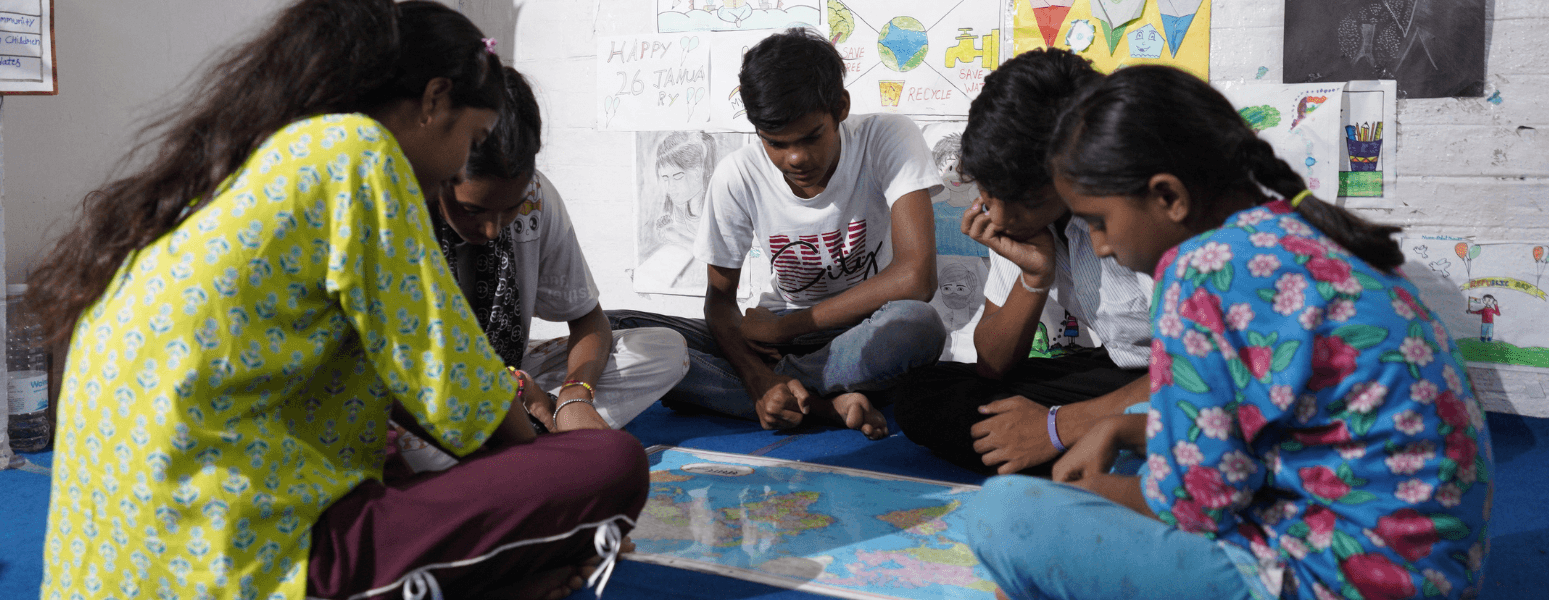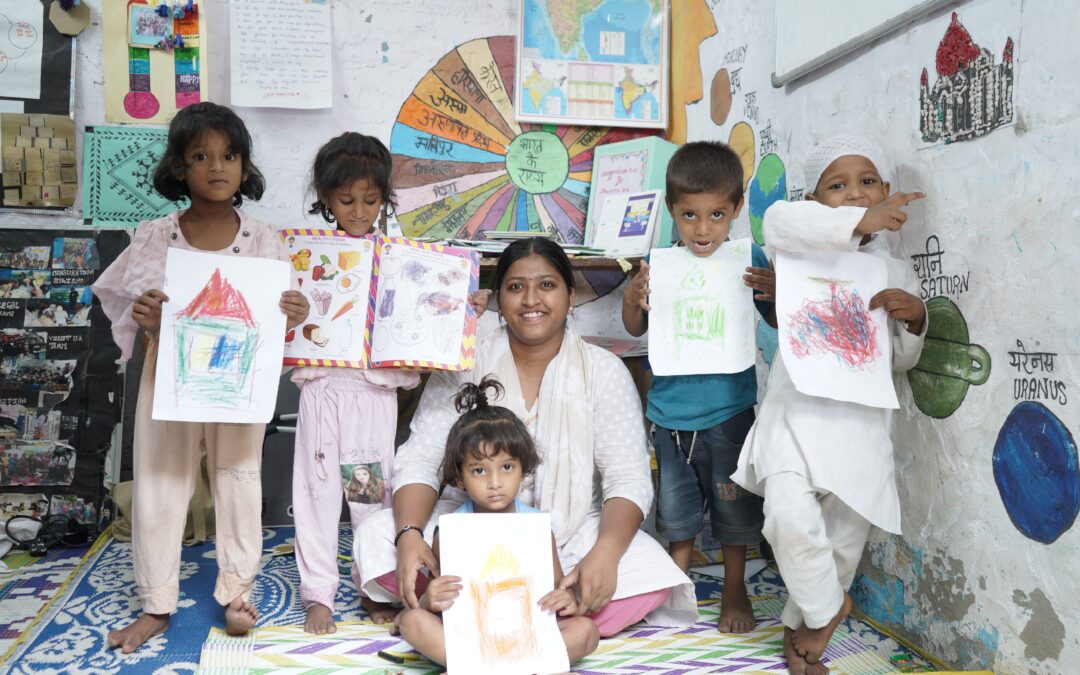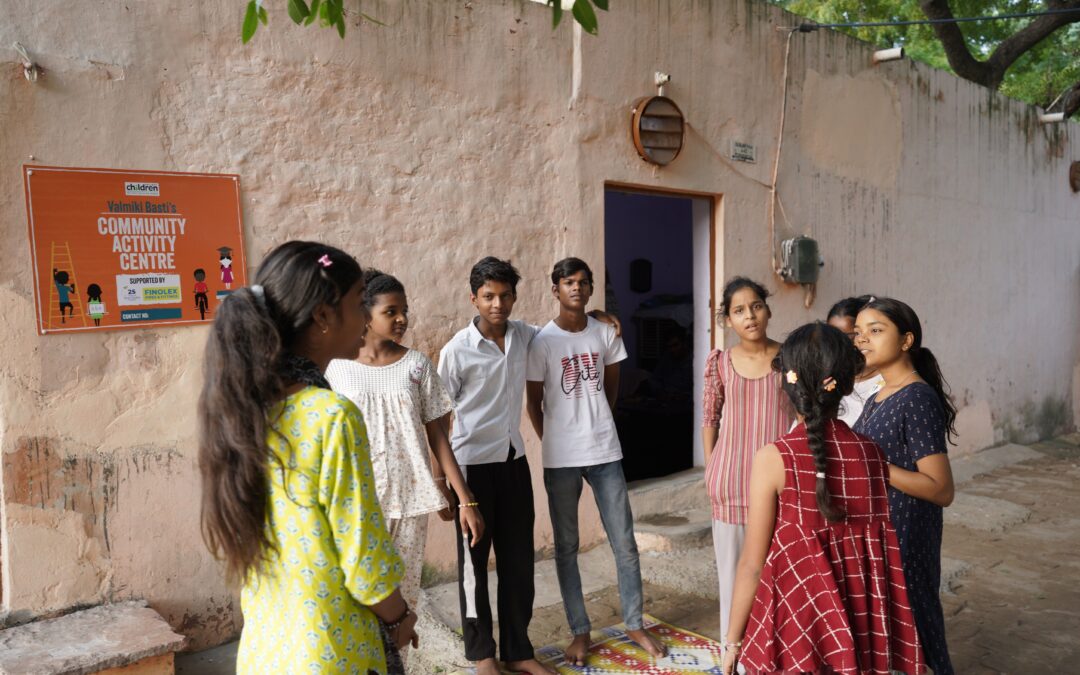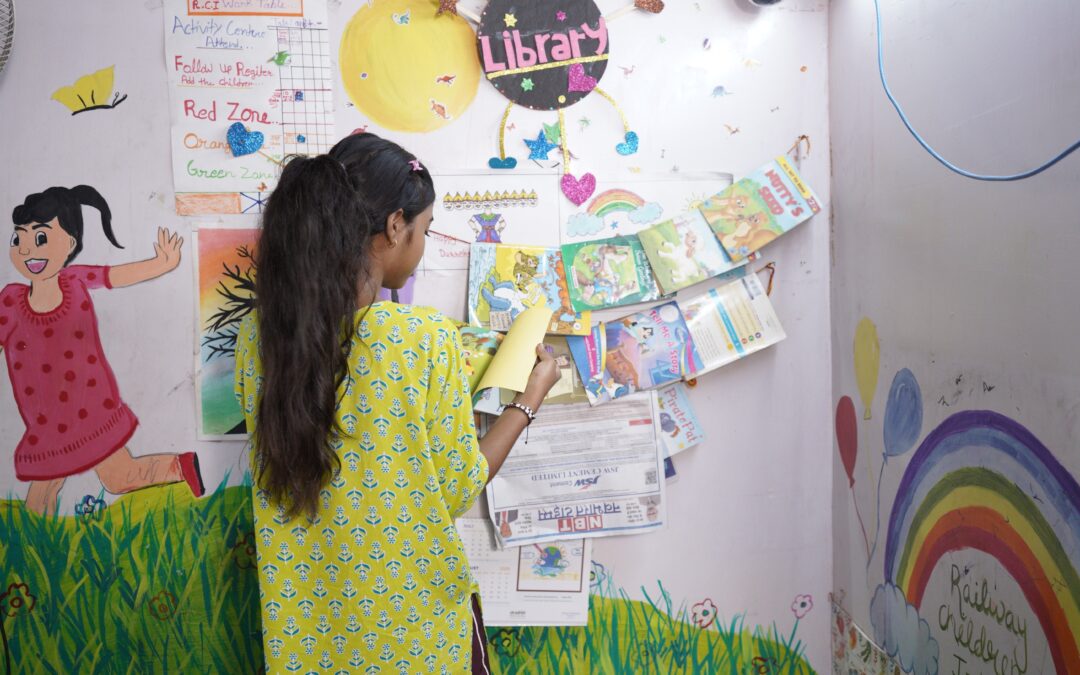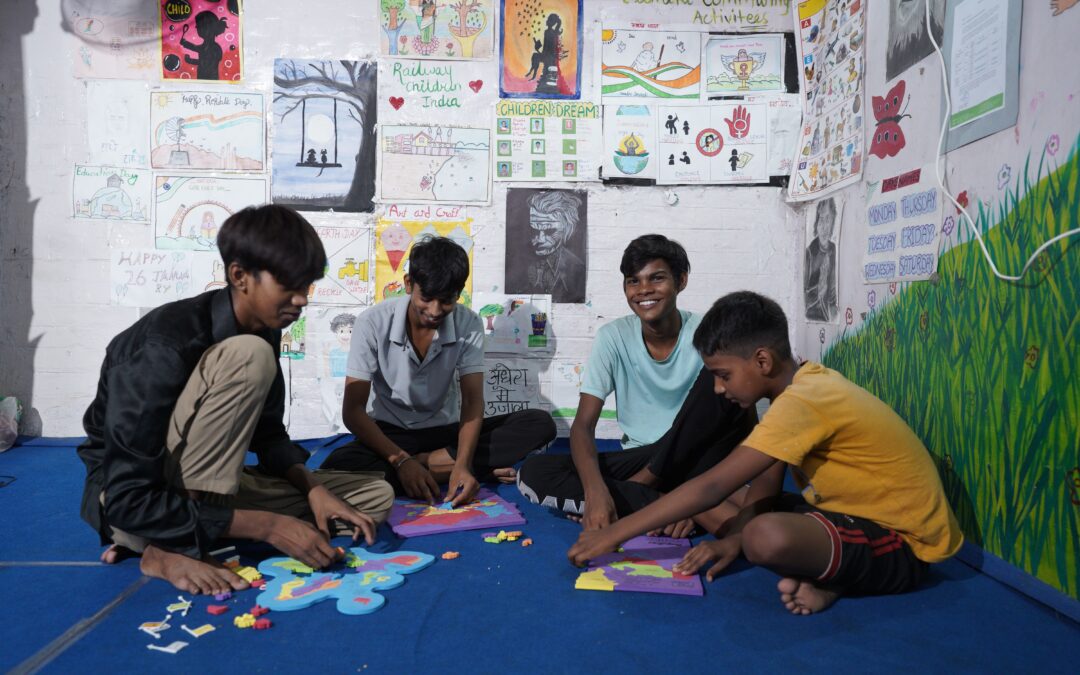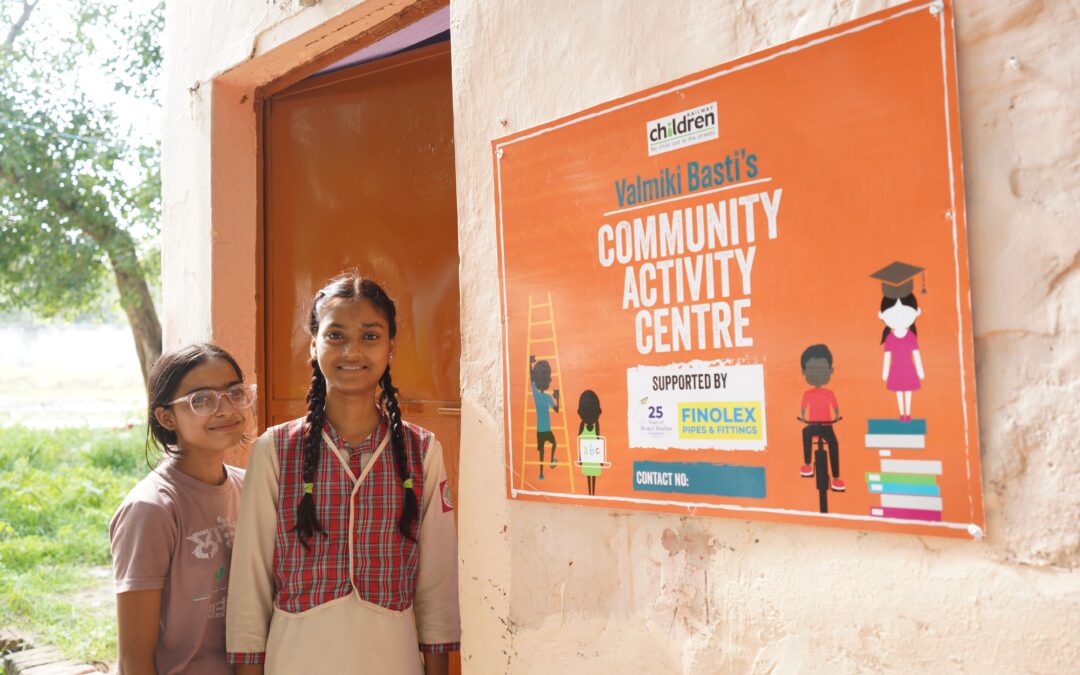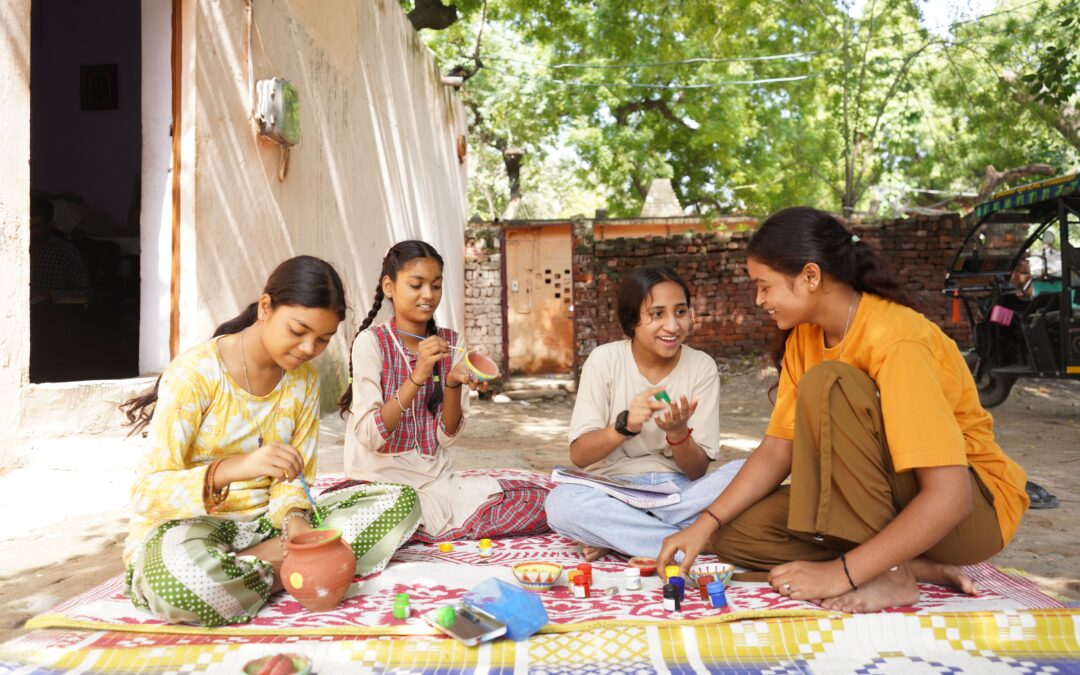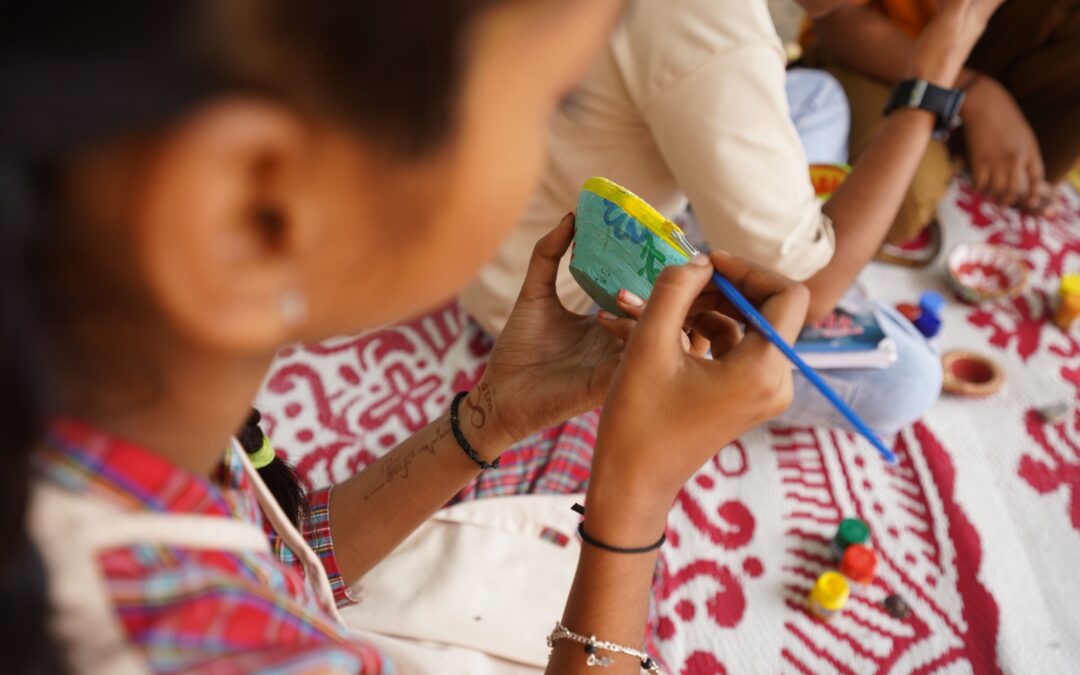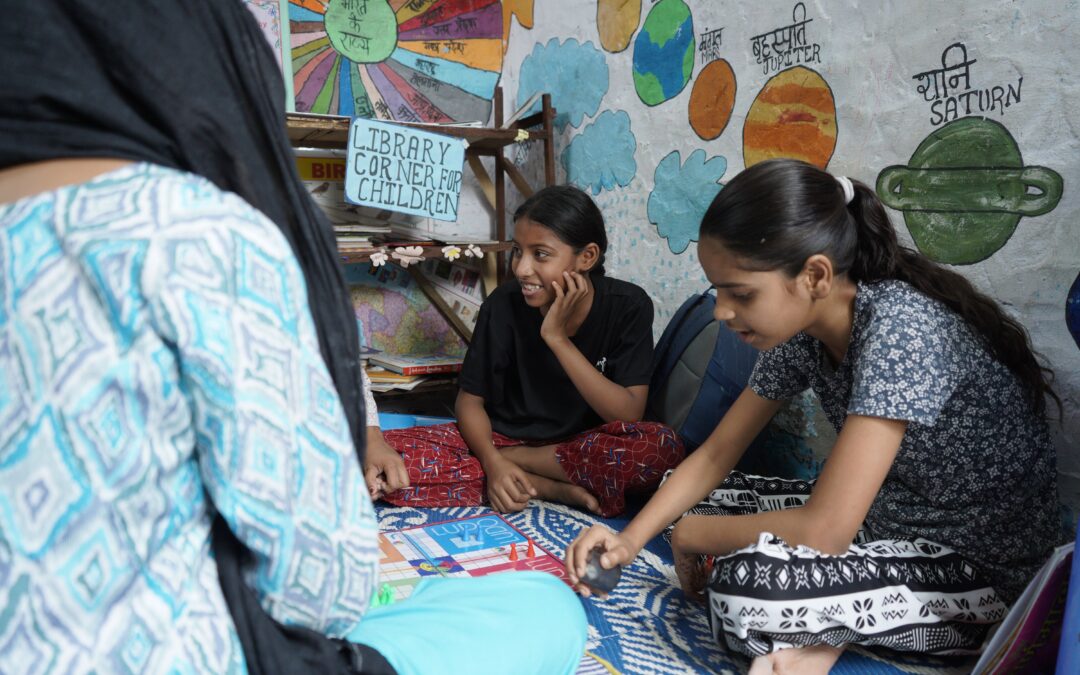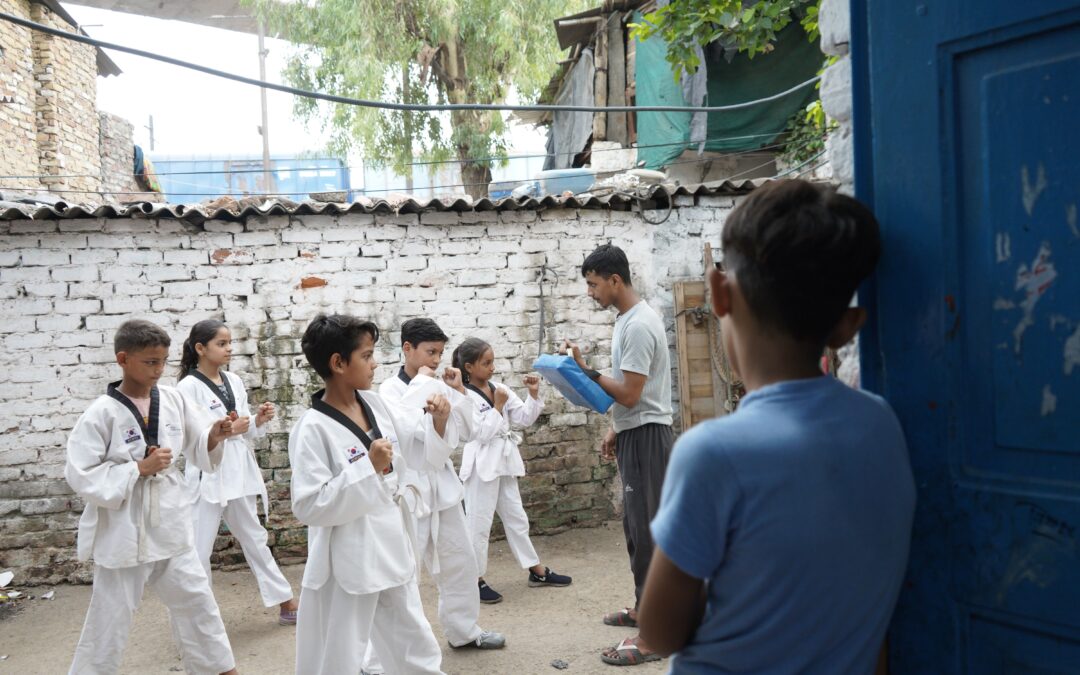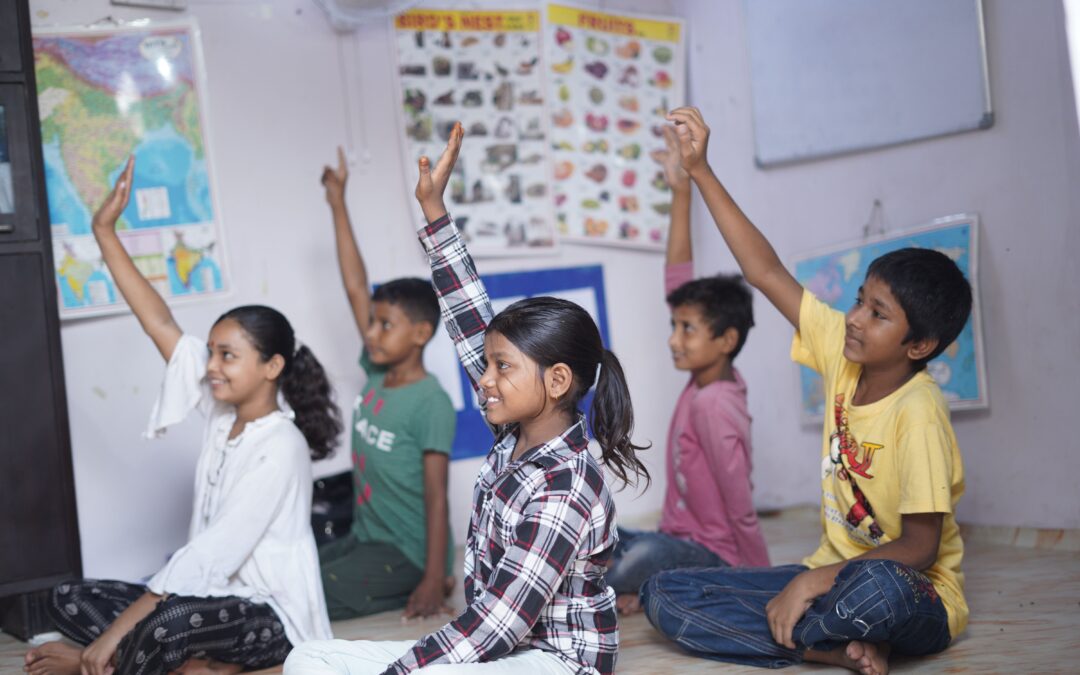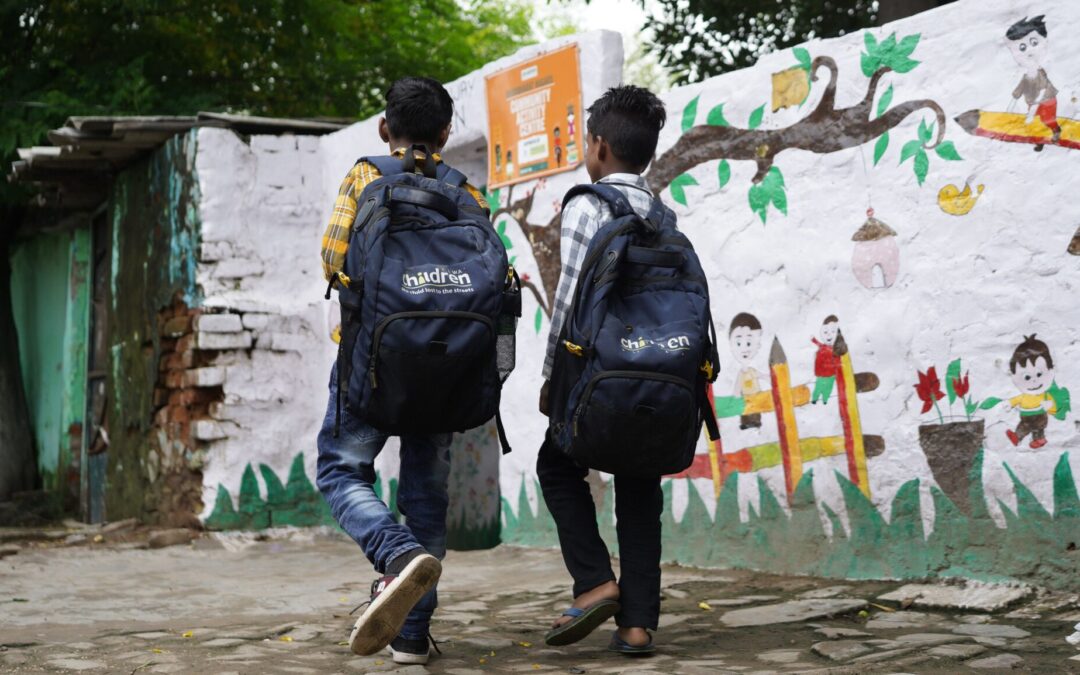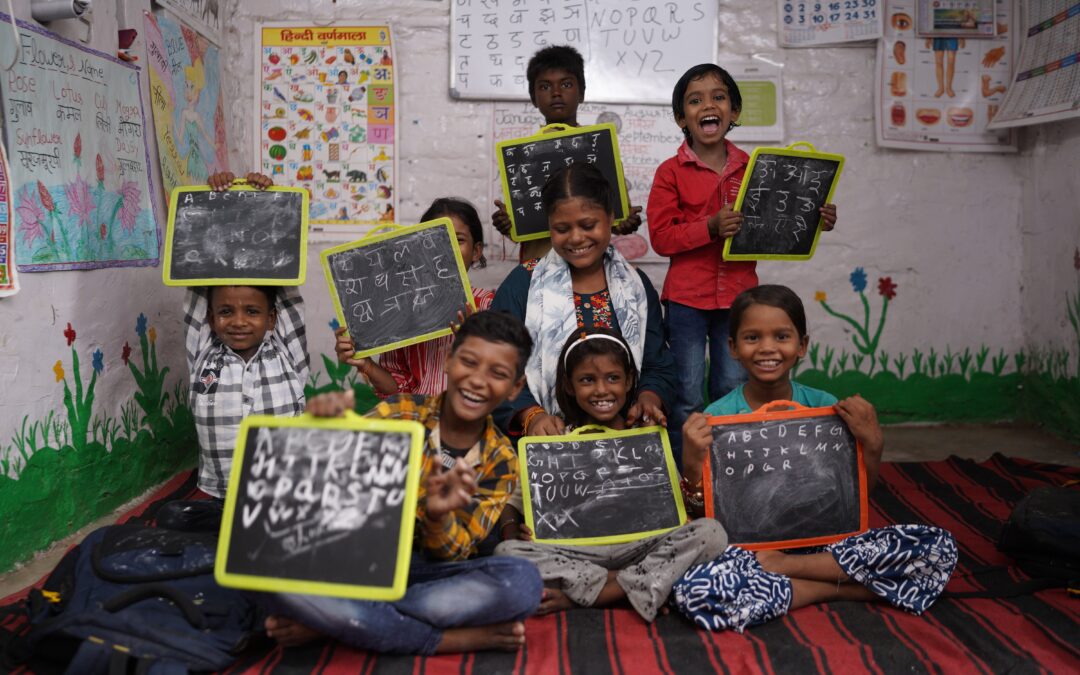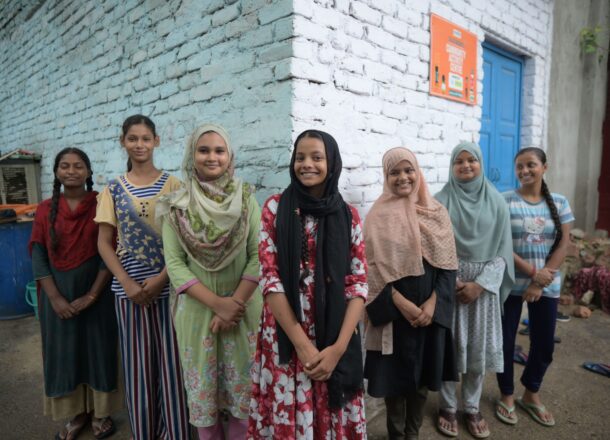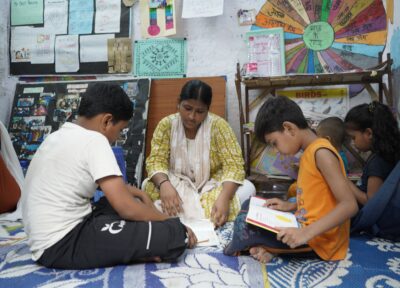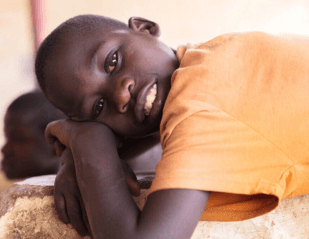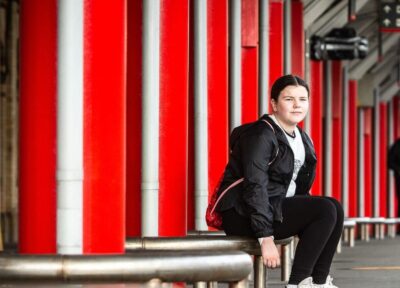Empowering children and families
Railway Children India’s (RCI) Child Activity Centres allow street-connected and vulnerable children and parents to play, learn, and build supportive networks with others.
Set up in six at-risk communities around India, they’re safe havens where children can play, learn new skills and express their feelings, and shape their communities.
For many children living on the streets, these spaces are a lifeline. They provide a safe and friendly environment where they can access advice and support that they might otherwise struggle to find.
Safe spaces to grow
Each centre has a library corner where children can sit and read books, either alone or in groups, to help build their reading and social skills.
RCI run classes for young people who can’t attend traditional school settings due to poverty or homelessness.
Three groups meet regularly at the centres: a mixed group for younger children, one for adolescent boys, and one for adolescent girls. These sessions are conducted by the training officer, with the support of community mobilisers and volunteers.
Older adolescents have the opportunity to help facilitate life skills sessions with the younger children, building their leadership and communications skills.

